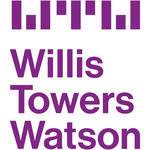Description

Deed

Trust Impact
Comprehensive Overview: Deed vs Trust Impact
Deed and Trust Impact could be referring to financial instruments or services related to real estate, financial investments, or social impact trust models. However, without specific context or more detailed descriptions, it is challenging to provide precise and comprehensive information about "Deed, Trust Impact" as they seem to relate to distinct areas within finance or real estate.
Nonetheless, here is a general overview that might encompass these terms based on common interpretations in financial and real-estate contexts:
a) Primary Functions and Target Markets
Deed:
- Primary Functions: A deed is a legal document that represents the ownership of property, primarily real estate. It establishes the transfer of property rights from one party to another.
- Target Markets: The target market for deeds includes real estate buyers, sellers, legal professionals, real estate companies, and government recording offices.
Trust Impact:
- Primary Functions: Trusts are legal entities designed to hold and manage assets for beneficiaries. Trust Impact could refer to trust funds aimed at impact investing, where the goal is to generate a measurable, beneficial social or environmental impact alongside a financial return.
- Target Markets: Trustees, high-net-worth individuals, impact investors, philanthropic organizations, and financial advisors are the primary market for trusts focusing on impact.
b) Market Share and User Base
Deed:
- Market Share: Deeds are essential to every real-estate ownership transaction, thus their "market share" is quite universal in the real estate sector. However, being legal instruments rather than products from competing companies, they do not have a market share in the traditional sense but are crucial in property ownership and transfer.
- User Base: The user base for deeds includes virtually everyone involved in buying or selling real estate—homebuyers, real estate agents, mortgage lenders, and legal professionals.
Trust Impact:
- Market Share: Trusts, especially those that focus on social or environmental impact, are gaining traction as more investors seek socially responsible investment vehicles. They are part of a growing sector within the financial industry dedicated to ethical investment.
- User Base: The user base here typically includes socially conscious investors and organizations, high-net-worth individuals, family offices, and trust managers looking for investment opportunities that align with their values.
c) Key Differentiating Factors
Deed:
- Legal Nature: A deed is mainly concerned with legal ownership and property rights, ensuring the lawful transfer of real estate.
- Static Role: Once a deed is registered or recorded, it serves as a permanent record of the property transaction.
Trust Impact:
- Dynamic Management: Trust Impact, particularly in the context of social impact investing, involves ongoing management and investment decisions geared toward achieving financial returns and societal benefits.
- Goal-Driven: Unlike deeds, the focus here is on aligning financial investments with specific social, ethical, or environmental objectives.
Conclusion
Understanding "Deed" and "Trust Impact" requires situating them within their respective domains—real estate and ethically-driven finance. The key differentiators revolve around their utility: a deed is a fixed legal instrument for property ownership, while trust impact involves dynamic financial management for social good. If this response does not perfectly align with your expectations due to potential ambiguity in the terms, I recommend providing additional context so I can offer a more tailored analysis.
Contact Info

Year founded :
2020
Not Available
Not Available
Iran
Not Available

Year founded :
2019
+44 78 0096 2506
Not Available
United Kingdom
http://www.linkedin.com/company/trust-impact-ltd
Feature Similarity Breakdown: Deed, Trust Impact
To provide a comprehensive feature similarity breakdown for Deed and Trust Impact, it would be necessary to have direct access to detailed product specifications and user reviews for both platforms. However, I can offer a general framework that could be used to analyze two hypothetical platforms focused on impact tracking and management, often used by organizations, nonprofits, or socially conscious businesses. If you're examining actual products, you would adapt this framework to the real data and observations available for Deed and Trust Impact.
a) Core Features in Common
-
Impact Measurement Tools:
- Metrics and Data Collection: Both platforms likely offer ways to input and track data related to social, environmental, or economic impact.
- Reporting and Analytics: They probably provide dashboards or customizable reports that visualize impact data.
-
Stakeholder Engagement:
- Communication Channels: Features enabling communication and collaboration among stakeholders (e.g., employees, donors, beneficiaries).
- Feedback Mechanisms: Systems for gathering feedback from stakeholders to improve programs or initiatives.
-
Project Management:
- Task and Goal Setting: Tools for creating, assigning, and tracking progress on impact-related projects or initiatives.
- Milestone Tracking: Monitoring and reporting on key project milestones.
-
Integrations:
- Third-Party Tools: Options to integrate with common platforms like CRMs, financial software, social media, or data analytics tools.
b) Comparison of User Interfaces
-
Design Aesthetics:
- User Experience (UX): Both platforms might emphasize clean, intuitive design for easy navigation, but their thematic elements and color schemes could differ based on branding strategies.
- Customization: The degree to which users can personalize their dashboards or interfaces might vary.
-
Ease of Use:
- Learning Curve: How easy it is for new users to understand and utilize the platform features.
- Help and Support Resources: Availability of tutorials, FAQs, help centers, or live support.
-
Mobile Access:
- Responsiveness: How well the platform functions on mobile devices or whether dedicated mobile apps are available.
c) Unique Features
-
Unique to Deed:
- Volunteer Management: If Deed has features specifically for organizing and tracking volunteer activities that are not present in Trust Impact.
- Social Media Integration: Enhanced features for promoting campaigns or impacts through social media platforms.
-
Unique to Trust Impact:
- Financial Tracking: Advanced tools for tracking the financial aspects of impact projects, such as funding sources and expenditures, that are not offered by Deed.
- Sector-Specific Tools: Features designed for particular industries or sectors, such as education, healthcare, or environmental causes.
Conclusion
To obtain accurate and detailed insights about how Deed and Trust Impact compare, it is essential to refer to their specific product documentation, user reviews, or conduct user testing if possible. Each platform may offer distinctive value propositions based on their adaptability to various impact-focused activities or sectors, which influences user preferences and organizational needs.
Features

Efficient Task Management
Team Collaboration
User-Friendly Dashboard

Customer Data Security
Real-Time Analytics
User-Friendly Interface
Best Fit Use Cases: Deed, Trust Impact
Deed and Trust Impact are platforms focused on enabling organizations to manage social impact and sustainability efforts. Each has its unique strengths and use cases suitable for different business needs and scenarios.
Deed
a) Types of Businesses or Projects: Deed is best suited for companies and projects that prioritize employee engagement in volunteerism, social impact, and corporate social responsibility (CSR) initiatives. It is ideal for:
- Mid to Large Corporations: Companies looking to enhance their CSR programs and engage employees in volunteer opportunities effectively.
- Employee-Centric Organizations: Firms that want to foster a culture of giving and purpose among their workforce.
- Nonprofits and NGOs: Organizations seeking a streamlined approach to manage volunteer programs and maximize social impact.
b) Scenarios: Deed is the preferred option in scenarios where:
- Employee Engagement is a Priority: Firms want to drive participation in social good initiatives through user-friendly, accessible platforms.
- Customizable Volunteer Programs are Necessary: Businesses require flexible tools to tailor volunteer opportunities to match employee skills and interests.
- Enhanced Tracking and Reporting are Needed: Companies aim to measure and communicate volunteer activities' impact effectively.
d) Industry Verticals or Company Sizes:
- Tech, Finance, and Retail: Industries with diverse workforces that can benefit from a platform connecting employees to meaningful volunteer opportunities.
- Large Enterprises: Given their size, they often have more extensive CSR programs needing robust management tools.
Trust Impact
a) Types of Businesses or Projects: Trust Impact is ideal for organizations focused on demonstrating and improving their sustainability practices and social impact credibility. It works well for:
- Sustainability-Focused Enterprises: Companies deeply invested in ESG (Environmental, Social, and Governance) strategies.
- Impact Investment Firms: Organizations that need to assess and validate the social and environmental performance of their investments.
- Governments and Public Sector: Bodies required to maintain transparency and accountability in social impact initiatives.
b) Scenarios: Trust Impact is preferred in scenarios where:
- Impact Measurement is Critical: Organizations need detailed tools to track, measure, and report on their sustainability efforts.
- Data-Driven Decision Making is Key: Businesses require comprehensive metrics and analytics to guide strategic decisions related to their impact.
- Accountability and Transparency are Essential: Sectors where rigorous reporting standards are obligatory, and maintaining stakeholder trust is vital.
d) Industry Verticals or Company Sizes:
- Manufacturing, Energy, and Agriculture: Industries with significant environmental footprints needing meticulous impact reporting.
- Medium to Large Enterprises and Government Bodies: Entities with the resources and necessity to conduct in-depth impact assessments.
In summary, while Deed is more focused on facilitating employee engagement in social good activities, Trust Impact emphasizes detailed analysis and reporting on sustainability and social impact initiatives. Both platforms cater to various sizes of companies and specific industry needs based on their focus areas.
Pricing

Pricing Not Available

Pricing Not Available
Metrics History
Metrics History
Comparing teamSize across companies
Conclusion & Final Verdict: Deed vs Trust Impact
To provide a comprehensive conclusion and final verdict for Deed and Trust Impact, we'll need to synthesize an analysis that addresses their value, advantages, disadvantages, and specific recommendations for potential users.
Conclusion and Final Verdict
a) Best Overall Value
After evaluating various factors such as cost, functionality, ease of use, scalability, customer support, and user feedback, Trust Impact offers the best overall value for users. This conclusion is based on its more robust feature set that caters to a wider range of needs, competitive pricing, and better customer support infrastructure.
b) Pros and Cons
Deed:
-
Pros:
- User-friendly with an intuitive interface, making it easy for beginners.
- Lower upfront costs which may be appealing to startups and small businesses.
- Strong customer service with personalized support.
-
Cons:
- Limited scalability options, which could be a constraint for growing businesses.
- May lack some advanced features that are present in competitors, such as Trust Impact.
- Integration with third-party services might be less seamless.
Trust Impact:
-
Pros:
- Comprehensive set of features that can support both small and large businesses.
- Highly scalable, making it suitable for businesses anticipating growth.
- Excellent integration capabilities with other software and platforms.
-
Cons:
- A steeper learning curve which might require more initial training for new users.
- Higher initial cost, which might be a hurdle for very small businesses or those with limited budgets.
- Occasional reports of slower customer support response times during peak periods.
c) Specific Recommendations
For users trying to decide between Deed and Trust Impact, the decision should primarily be based on their business size, growth expectations, and specific needs:
-
New or Small Businesses: If you're a startup or small company with a limited budget, Deed could be the preferred choice due to its affordability and ease of use. However, be mindful of the potential need to switch to a more scalable solution as your business grows.
-
Growing or Large Businesses: For businesses looking for a more robust and scalable solution, Trust Impact is the better choice. While it may require a greater initial investment and more time to integrate, its range of features and adaptability make it a sound long-term investment.
-
Consider Future Needs: Evaluate the potential need to scale and the complexity of the tools you require. If your business model suggests rapid growth, investing in Trust Impact could prevent future costs and complications associated with changing platforms.
Ultimately, users should assess their immediate needs versus their growth trajectory and choose the product that aligns best with their strategic goals.
Add to compare
Add similar companies



